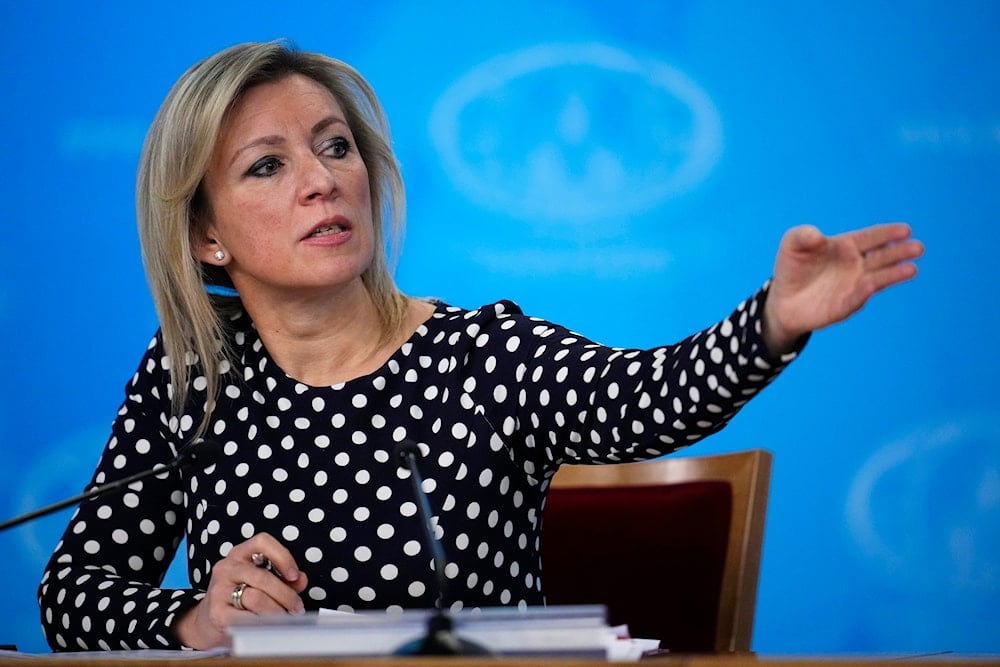Russia-Iran nuclear cooperation to continue: Zakharova
Maria Zakharova reaffirms Moscow and Tehran's legitimate nuclear cooperation, emphasizing its continuation despite challenges with the IAEA.
-

Russian Foreign Ministry spokeswoman Maria Zakharova gestures during Russian Foreign Minister Sergey Lavrov's annual news conference in Moscow, Russia, Thursday, Jan. 18, 2024 (AP)
Cooperation between Moscow and Tehran on peaceful nuclear development is entirely legitimate and will persist, according to Russian Foreign Ministry spokeswoman Maria Zakharova's statement on Thursday.
"Our well-known cooperation with Tehran in the field of peaceful nuclear energy is absolutely legitimate and meets the interests of both countries. It will be continued," emphasizing that the cooperation between the two countries will "not be challenged by anyone in any way."
"As for the prospects of cooperation with Iran in general, it will continue to develop fruitfully in all areas," Zakharova added in her statement.
Moscow hopes the harm done to cooperation between Tehran and the International Atomic Energy Agency (IAEA) can be restored, though this depends on certain conditions being met, Russian Foreign Ministry spokeswoman Maria Zakharova further stated.
The key condition for restoring cooperation is ensuring lasting peace and solid guarantees that Iran's nuclear facilities, along with their materials, equipment, and personnel, will not face further attacks, while also preventing the IAEA's verification mechanisms from being misused in ways that violate international law, Russian Foreign Ministry spokeswoman Maria Zakharova emphasized.
Iran halts cooperation with IAEA
The decision to halt Tehran's collaboration with the IAEA stems from the agency's ambiguous stance, as it failed to denounce the actions taken by "Israel" and the United States, Russian Foreign Ministry spokeswoman Maria Zakharova further explained.
On June 26, Iran's Guardian Council officially approved a parliamentary measure requiring the cessation of collaboration with the International Atomic Energy Agency (IAEA), as confirmed by the Council's spokesperson, Hadi Tahan Nazif.
Iran's Parliament passed the resolution following growing discontent over the IAEA's refusal to denounce recent strikes targeting the country's nuclear sites, though the move does not indicate Tehran's intention to exit the Nuclear Non-Proliferation Treaty, as reported by Al Mayadeen's correspondent.
During the parliamentary session, Speaker Mohammad Bagher Ghalibaf announced that Iran's Atomic Energy Organization would halt all collaboration with the IAEA until concrete assurances are provided regarding the security of the nation's nuclear facilities.
The parliamentary speaker condemned the IAEA for not offering even a token denunciation of the attacks while stressing that Tehran would intensify its peaceful nuclear program, though maintaining vigilant skepticism toward international commitments.

 3 Min Read
3 Min Read








